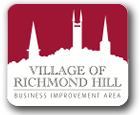Managing rental properties effectively is essential for maximizing returns and ensuring tenant satisfaction. From tenant screening to maintenance, property management encompasses various tasks that require strategic planning and execution. Whether you’re a seasoned property manager or a novice landlord, implementing the right strategies can make all the difference in your rental property success.
1. Thorough Tenant Screening
One of the most critical aspects of property management is tenant screening. Finding reliable tenants who pay rent on time and take care of the property can significantly reduce headaches down the road. Conduct thorough background checks, including credit history, rental history, and employment verification, to assess potential tenants’ reliability.
2. Effective Communication
Clear and open communication is key to a successful landlord-tenant relationship. Establishing channels for communication and promptly addressing tenant concerns or maintenance issues can help build trust and foster positive relationships with tenants.
3. Regular Maintenance and Inspections
Proactive maintenance and regular property inspections are essential for preserving the value of your rental property. Addressing maintenance issues promptly can prevent minor problems from escalating into costly repairs and ensure that the property remains in good condition.
4. Stay Updated on Landlord-Tenant Laws
Understanding landlord-tenant laws and regulations is crucial for protecting your rights as a property owner and ensuring compliance with legal requirements. Stay updated on local and state laws governing rental properties to avoid potential legal issues.
5. Utilize Technology
Embracing technology can streamline property management tasks and improve efficiency. Property management software can help automate rent collection, maintenance requests, and tenant communication, making it easier to manage multiple properties efficiently.
6. Financial Management
Maintaining a solid financial management system is essential for rental property success. Keep detailed records of income and expenses, set aside funds for maintenance and repairs, and regularly review your financial performance to ensure profitability.
7. Offer Amenities and Services
Providing desirable amenities and services can attract quality tenants and enhance the value of your rental property. Consider amenities such as laundry facilities, parking, or pet-friendly policies to appeal to a broader range of potential tenants.
8. Build a Reliable Network of Contractors
Having a reliable network of contractors and service providers is essential for addressing maintenance and repair issues promptly. Establish relationships with reputable contractors for services such as plumbing, electrical work, and landscaping to ensure timely and quality service.
9. Implement a Tenant Retention Strategy
Retaining good tenants is often more cost-effective than finding new ones. Implementing a tenant retention strategy, such as offering lease renewal incentives or addressing tenant concerns promptly, can help reduce turnover and vacancy rates.
10. Continuous Education and Improvement
Property management is a dynamic field that requires staying updated on industry trends and best practices. Invest in continuous education and professional development to improve your property management skills and stay ahead of the competition.
Conclusion
Mastering property management requires a combination of effective strategies, proactive maintenance, and strong communication skills. By implementing the right strategies and staying informed about industry trends, you can maximize the success of your rental property investment. Remember to prioritize tenant satisfaction, stay compliant with legal requirements, and continuously seek opportunities for improvement. For more resources and expert advice on property management, visit www.districtrealty.com.
In summary, successful property management involves thorough tenant screening, effective communication, proactive maintenance, compliance with landlord-tenant laws, leveraging technology, solid financial management, offering desirable amenities, building a reliable network of contractors, implementing a tenant retention strategy, and continuous education and improvement. By incorporating these strategies into your property management approach, you can achieve long-term success and maximize the returns on your rental property investment.
